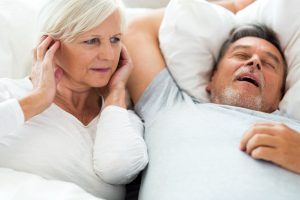 Does your partner snore loudly at night? If so, he or she could be suffering from sleep apnea, a condition that is affecting millions of Americans. It leaves them unable to reap the full benefits of a night of sleep, and it can contribute to the development of some life-threatening conditions. With that in mind, the last thing this population wants to do is exacerbate the problem. Read on to learn how consuming alcohol and back-resting can make sleep apnea in Plano worse.
Does your partner snore loudly at night? If so, he or she could be suffering from sleep apnea, a condition that is affecting millions of Americans. It leaves them unable to reap the full benefits of a night of sleep, and it can contribute to the development of some life-threatening conditions. With that in mind, the last thing this population wants to do is exacerbate the problem. Read on to learn how consuming alcohol and back-resting can make sleep apnea in Plano worse.
What is Sleep Apnea?
A person suffering from sleep apnea will typically snore loudly, have frequent lapses in breathing and may make gasping sounds while sleeping. Most often, this is caused by a partial blockage of the airway, which is called obstructive sleep apnea (OSA).
As a protective mechanism, the brain sends a distress message when there is a lapse in breathing that causes the person to awaken. Because this can happen hundreds of times throughout the night, the person is left feeling lethargic and drained the next day.
Over time, if the condition is not treated, serious conditions like hypertension, obesity, heart disease and stroke can arise.
How Alcohol Consumption Contributes to Sleep Apnea
Since alcohol is a depressant, it may seem like it would be a helpful sleep aid. The truth is for people dealing with OSA, it can be quite dangerous to consume alcohol before retiring for bed.
That’s because it has a tendency to relax the throat muscles more than normal during the sleep cycle. The result can be restricted airflow.
What’s Wrong with Sleeping on Your Back?
For a person with normal health, sleeping on the back is considered to be the most anatomically-correct position, as it allows the head, neck and spine to rest in neutral alignment. However, among the population with OSA, this can have negative effects, as it can allow the tongue to fall to the back of the mouth, partially blocking the airway.
One way to decrease the chances of this happening is to sleep in a slightly-elevated position or on either side of the body.
How OSA Can be Treated
After you’ve been fully assessed, a sleep dentist can provide you with a custom-designed oral appliance to be worn while you rest at night. Its function is to slightly shift the jaw to allow for better airflow by preventing your tongue from blocking your throat.
If you’ve been dealing with sleep apnea, you can finally get some relief. All it takes is to reach out to your sleep dentist to schedule a visit, and you’ll soon be able to put an end to snoring in Plano.
About the Author
Dr. Keane Fedosky is a graduate of Baylor College of Dentistry. He has since gone on to notch 20 years of experience in oral appliance therapy. As part of his commitment to helping patients get the best sleep possible, Dr. Fedosky maintains professional affiliation with the American Academy of Dental Sleep Medicine. He treats sleep apnea at Sleep Rehab, and he can be reached for more information through his website.
